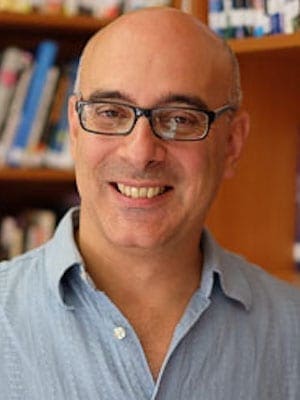The origins of ISIS date to 2004, but it wasn’t until April 2013 that they gained the world’s attention through efforts to establish a caliphate in Iraq and Syria.
In my previous column, I shared three takeaways from Graeme Wood’s article about ISIS that appeared in The Atlantic. Here I offer two additional points focused on ways to counter ISIS’ recruitment efforts.
1. Given the particular apocalyptic views of ISIS and its global recruits, which Wood highlights in his article, I agree with him that a massive ground attack on ISIS is not the solution.
This would only increase the legitimacy, and therefore appeal, of ISIS, by advancing the expectations of its own apocalyptic vision.
Red lines should be drawn, and surely they already are, to ensure that ISIS does not gain more territory. Borders should be reinforced.
Without pontificating too long about military strategy, I do believe that it is certainly the responsibility of states (particularly Iraq and Syria at the moment) to ensure and defend their territorial integrity, and to remedy if that integrity is in jeopardy.
Seeking the support of their allies in doing so seems quite legitimate, as well.
By every means possible, ISIS’ “caliphal” ideology needs to be delegitimized: undermine its territorial integrity, prevent it from expanding, minimize its image as a global player taking on the world, and, perhaps most important, prevent global jihadists from joining its ranks.
2. When Muslim apologists feel that they need to reject ISIS as non-Islamic, they risk obstructing a more fruitful fight against ISIS consisting in drying up the ideological pools of ISIS recruitment.
Rather than dismissing ISIS’ interpretation of Islam as un-Islamic, it would be better to make a strong case for the reason why the ISIS interpretation is less legitimate than the one that promotes tolerance, love and brotherly/sisterly relations with non-Muslims.
I am not saying that the apologists of Islam are not promoting these alternative interpretations and visions already.
But I am saying that the argument that simply disowns the ISIS interpretation as “un-Islamic” is drowning the more cool-headed conversation that builds a solid case for why the ISIS interpretation is heavily biased, and why it is certainly not viable for the world today.
Most important, and what is most often ignored by politicians and journalists, is the long-term solution to ISIS.
How many more “repeats” do we need before we understand that militant jihadist groups are a recurring phenomenon, and not a one-off monster that we can get rid of?
Yes it is a monster, but this one grows seven more heads for each head that gets chopped off.
A massive global movement needs to be launched to dry up the recruitment pools of ISIS.
I believe that the ISIS recruitment pools are made up of the disenfranchised: those with nothing more to lose, those who have lost faith in modern forms of government and social systems, those angered and marginalized by the dictatorial, corrupt and self-serving regimes in the Muslim world that enjoy the support of the neo-colonial powers of the West.
What is the world going to do about these realities? That’s what we should all be asking.
This generation needs to stop distracting itself with temporary military solutions to the problem of religious radicalization.
It needs to invest its efforts in economic development, in establishing organizations and nongovernmental organizations, writing books, influencing the media, composing and singing songs, and dedicating their arts and passions to drying up the recruitment pools of ISIS.
Christian de Chergé, the Abbot of the “Trappist Fathers” of Algeria, was murdered, along with several others by Muslim fanatics in 1996.
In his Testament of Christian de Chergé, written from December 1993 to January 1994, he was able lucidly to differentiate between the blind fanaticism of a Muslim extremist and the peaceful nature of its mainstream.
“I do not see, in fact, how I could rejoice if the people I love were indiscriminately accused of my murder. It would be too high a price to pay for what will perhaps be called, the ‘grace of martyrdom’ to owe it to an Algerian, whoever he might be, especially if he says he is acting in fidelity to what he believes to be Islam,” he wrote.
“I am aware of the scorn which can be heaped on the Algerians indiscriminately,” de Chergé continued. “I am also aware of the caricatures of Islam which a certain Islamism fosters. It is too easy to soothe one’s conscience by identifying this religious way with the fundamentalist ideology of its extremists.
His imitation of Christ allowed him to frame Muslim religious fanaticism where it really belongs: one more manifestation of sin and evil, for which humanity is corporately responsible.
Though the evil we keep seeing perpetrated by the adherents of ISIS is in no way excusable or justifiable, the rest of the world is not completely innocent, given that our eyes are still not set on the long-term solutions to beating back ISIS.
 Martin Accad is director of the Institute of Middle East Studies at Arab Baptist Theological Seminary in Beirut. A version of this column first appeared on the IMES blog and is used with permission. You can follow him on Twitter @marzaatar and IMES @IMESLebanon.
Martin Accad is director of the Institute of Middle East Studies at Arab Baptist Theological Seminary in Beirut. A version of this column first appeared on the IMES blog and is used with permission. You can follow him on Twitter @marzaatar and IMES @IMESLebanon.
Editor’s note: This is the second of a two-part series. Part one is available here.

